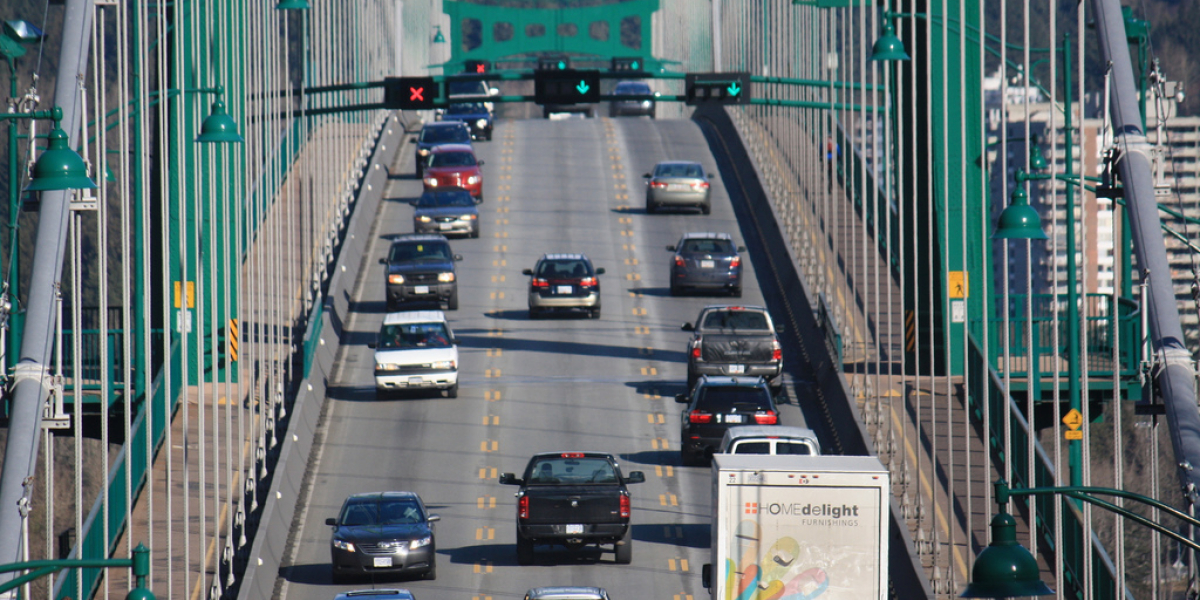
Guest post by Vincent Thivierge
While people on both sides of the border are still digesting the American election results, Prime Minister Justin Trudeau reiterated that his government is moving forward with a pan-Canadian carbon price. Given the risk of weakened climate policies in the US for the coming years, some might wonder if it is still a good idea for Canada to move ahead without our gargantuan neighbor.
When it comes to gasoline consumption, a new working paper available online on SSRN, co-authored by Chad Lawley from the University of Manitoba and myself, provides continued evidence of the effectiveness of unilateral carbon pricing in Canada. Titled “Refining the evidence: British Columbia’s carbon tax and household gasoline consumption,” we employ Canadian household-level data to assess the impacts of BC’s carbon tax. Our estimates suggest that the policy reduced gasoline consumption by 10.7%. Even our most conservative estimates, which account for potential cross border purchases of gasoline in the US, suggest that the carbon tax reduced gasoline consumption by 6.7%. An interesting result is that most of the gasoline reduction by households in BC came from large and mid-sized cities as opposed to rural and Northern areas.
Our results can be compared to the results of two previous studies using provincial level gasoline consumption data: Canadian economists Rivers and Schaufele (2015) and Antweiler and Gulati (2016) found that BC’s 6.7 cents/liter carbon tax reduced gasoline demand by 11.3 and 7% respectively. The fact that results from all three of these studies are similar provides convincing evidence that the carbon tax had a significant impact on gasoline consumption.
Our access to detailed household data through Statistics Canada’s Research Data Centres program allows us to push the analysis one step further and begin to look at how different groups of people within BC reacted to the policy. We looked at how location of households mattered; if they lived in a large city like Vancouver, in mid-sized cities like Victoria, Kelowna or Abbostford, or in smaller rural and Northern areas. Why should location of residence matter? Households in cities live in more densely populated communities and have better access to public transit and transportation alternatives relative to their rural and northern counterparts. We find that households in Vancouver responded most to the carbon tax, followed by households in the mid-sized cities. Our results suggest that a one cent increase in the carbon tax results in a 2.4% decrease in gasoline consumption in Vancouver and a 2% decreases in the mid-sized cities. It is important to mention that our analysis controls for key factors, such as major public transit expansion (for example, the 2009 Canada Line in Vancouver), household income, household composition, and number of vehicles.
We find no evidence that households in rural and northern areas responded to the carbon tax. This is consistent with the fact that households in rural and northern areas have fewer transportation alternatives and are more dependent on private vehicles (as a share of total expenditures, households in rural areas spend almost twice as much on fuel for private vehicles compared to households in large cities) than households in large and mid-sized cities. Previous research in California suggests that opposition to low carbon policies is strongest among households that are least able to adapt. Public opposition to the BC carbon tax was greatest in rural and northern areas, perhaps fueled in part by their inability to respond to such a tax.
Another dimension we explore is how increased border crossings from Vancouver to Washington State (beginning in 2010 due to favorable exchange rates) influenced the effectiveness of the carbon tax. If the reduction in gasoline consumption in BC attributed to the carbon tax is actually BC folks driving across the border to fill their tanks, then this is a policy distortion known as carbon leakage--a situation where carbon pricing in one jurisdiction leads to increased emissions in another jurisdiction where such costs are not imposed. Using data on the number of Canadian vehicles returning from Washington State, we test whether our estimates of the impact of BC’s carbon tax holds up under the assumption that every vehicle crossing the border filled their tank in the US. We find they do hold up under this scenario: a 1 cent increase in the carbon tax reduces gasoline demand by 1.3%.
Our results demonstrate that households respond to a price on carbon. Most importantly, our results suggest that the location of households matters. Having access to better transportation alternatives, households in larger cities are better able to respond to an increased carbon tax than households in rural or northern locations. Even with folks crossing the border, BC’s carbon tax still reduced household gasoline consumption in BC. At current price levels, this suggests that carbon pricing policy in Canadian jurisdictions can still be effective without nearby US jurisdictions implementing similar policies.
Click to view the working paper "Refining the Evidence: British Columbia's Carbon Tax and Household Gasoline Consumption."